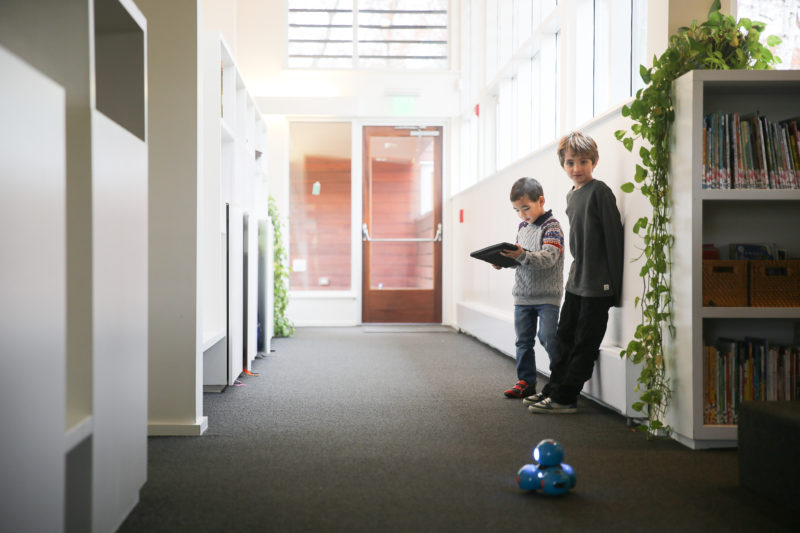Is there a balanced and thoughtful way to integrate digital devices into family life? Are there boundaries to create now that will be helpful as your children grow older? I can’t think of a better guide to these questions than Janell Burley Hofmann’s book iRules: What Every Tech-Healthy Family Needs to Know about Selfies, Sexting, Gaming, and Growing Up. Hofmann—who gave an engaging Parenting Lecture at TCS—offers smart, funny and honest advice in her book for navigating the digital age in a conscious way.
It’s helpful to think about your values and comfort level with tech while your kids are young—before a smartphone is their constant companion. Hofmann’s book is a helpful to guide to creating a “tech-healthy” family, and an important part of that process is to come up with a set of family rules around the use of digital devices. Below, Hofmann shares the iRules contract that she and her daughter, Lily, recently created together. Lily is in middle school, but many of the rules, especially about protecting sleep and family schedules, are helpful for younger children.
My seventh grader Lily & I wrote two versions of her new iRules contract. One is from her perspective, and one is from mine.
Lily’s iRules Contract: Part 1, by Lily
1. Phone must have password. Mom and Dad must know it.
2. If I see anything bad, say something about it.
3. Always ask if I’m not sure if I should post.
4. I can bring it to friends’ houses, soccer and sports if I need it.
5. I can make calls and FaceTime people I know, like friends and family.
6. I can’t have it in my room when it’s time for bed.
7. I can bring it to school, but it’s turned off unless a teacher says it’s OK or we’re allowed to have it
out.
8. Ask permission before getting apps or purchases.
9. Turn off at 8 p.m. on school days. Exception if I have soccer until late.
Lily’s iRules Contract: Part 2, by Janell
Here are my rules to live by. I hope they grow right along with you.
- You must sleep when it’s time to sleep and eat when it’s time to eat. Screen free. Always.
- There will be things you have to do—study, solve, practice, prepare—with a full heart, mind and focus. If your screen is not an aid, it’s away.
- Your device is public space. It is a billboard outside of your school. A message to the world. A true group convo. Don’t say it, share it, like it or look it up if you don’t want all eyes on it.
- Here’s the thing about jerks—you are not one. Devices disappear if this should change.
- It may become harder to just breathe and be, sit with yourself and others. But you must. Do not give this up for anything.
- You are a child. A beginner. New. I am old and wise and on your side. I like it here. Use me up. Put me to work. You are not alone.
Janell Hofmann’s website also has suggestions for creating the boundaries that will protect the privacy and time needed for family life. As useful as apps, social media and digital devices can be, having some iRules in place will help you raise children who are as adept and engaged in their relationships and the real world as they are in the digital realm.
iInspired,
Maureen

